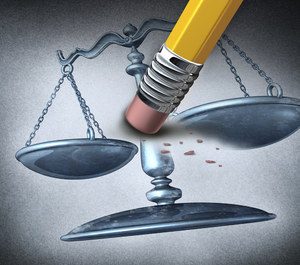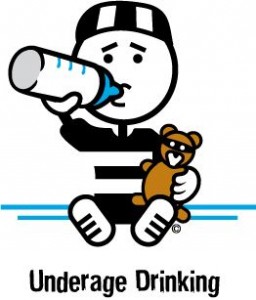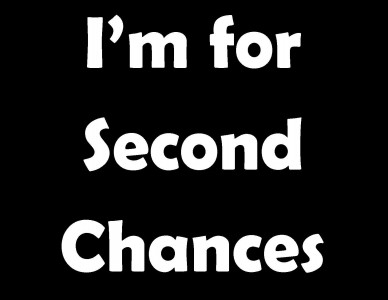The Second Chance Act, Part I – North Carolina
Friday, January 8th, 2021
The Second Chance Act was signed by Governor Cooper on June 25, 2020, with a unanimous passing at the General Assembly. This new bill, in an effort to expand opportunities and streamline services for expunctions (or expungements), will not only benefit individuals with criminal records, but also law enforcement and court personnel.
Charges that are dismissed without leave, dismissed by the court, acquitted, found not guilty, or not responsible on or after December 1, 2021, will be automatically expunged pursuant to the new North Carolina General Statute §15A-146(a4). Until that date, charges that fall under the same category will need to still be petitioned to be expunged, either by the individual or an attorney. In addition, there will be no disqualification based on prior convictions of felonies or misdemeanors. Under the previous law, individuals with prior felony convictions could not obtain an expunction of a dismissed charge. The new statute also involves no waiting period and no limit on the number of expungements an individual can pursue for dismissed charges. A petition for expunction may be filed by the affected person or by the District Attorney.
According to the new statute, if any person is charged with a crime, either a misdemeanor or a felony, or is charged with an infraction, the charges in the case are expunged by operation of law if all of the following apply:
(1) All charges in the case are disposed on or after December 1, 2021, and
(2) All charges in the case are dismissed without leave, dismissed by the
court, or result in a finding of not guilty or not responsible.
If you or someone you know is interested in having their record expunged in New Hanover, Pender, or Brunswick County, please give our office a call for a confidential consultation. We also handle serious personal injury and wrongful death cases as well as wills and estates with our of counsel attorney, Mitch Baker.
By Karen M. Thompson, Paralegal



 It happens so easily—one makes a bad choice, gets misunderstood, or falsely accused, and in the result faces criminal charges. Regardless of the outcome in a criminal matter—even in case of a wrongful criminal charge—the fact that one was criminally charged will result in a criminal record. Unless dealt with appropriately, a criminal record may create a virtuous circle and negatively affect one’s chances in the job market, in college applications, on the housing market, etc. In an attempt to mitigate or avoid negative consequences of one’s criminal record, one should consult with an attorney about whether or not they are eligible for an expunction of their criminal record and if eligible, pursue the expunction.
It happens so easily—one makes a bad choice, gets misunderstood, or falsely accused, and in the result faces criminal charges. Regardless of the outcome in a criminal matter—even in case of a wrongful criminal charge—the fact that one was criminally charged will result in a criminal record. Unless dealt with appropriately, a criminal record may create a virtuous circle and negatively affect one’s chances in the job market, in college applications, on the housing market, etc. In an attempt to mitigate or avoid negative consequences of one’s criminal record, one should consult with an attorney about whether or not they are eligible for an expunction of their criminal record and if eligible, pursue the expunction. A new policy in the Fifth Prosecutorial District that affects youths charged with underage drinking has gone into effect as of late November of 2014. This new policy will reshape the requirements for those who enter into a deferred prosecution agreement for an underage drinking charge. The goal of this new program is to help young offenders by teaching them the risks and consequences of underage alcohol consumption as well as avoiding a permanent mark on their criminal record. This program will only be offered to first time offenders that have not previously been convicted of any drug or alcohol crimes.
A new policy in the Fifth Prosecutorial District that affects youths charged with underage drinking has gone into effect as of late November of 2014. This new policy will reshape the requirements for those who enter into a deferred prosecution agreement for an underage drinking charge. The goal of this new program is to help young offenders by teaching them the risks and consequences of underage alcohol consumption as well as avoiding a permanent mark on their criminal record. This program will only be offered to first time offenders that have not previously been convicted of any drug or alcohol crimes. Generally, the fact that one was charged with a crime remains on their record regardless of the disposition of the charge, unless the charge gets expunged. An expungement in North Carolina is the eradication of one’s criminal record by court order. The effects of an expunction or expungement are outlined in N.C.G.S. § 15A-153 and include that upon expunction one may truthfully and without committing perjury or false statement deny or refuse to acknowledge that the criminal incident occurred.
Generally, the fact that one was charged with a crime remains on their record regardless of the disposition of the charge, unless the charge gets expunged. An expungement in North Carolina is the eradication of one’s criminal record by court order. The effects of an expunction or expungement are outlined in N.C.G.S. § 15A-153 and include that upon expunction one may truthfully and without committing perjury or false statement deny or refuse to acknowledge that the criminal incident occurred. Our nation has faced some difficult economic times as of late. In North Carolina, these trying times have left over 400,000 unemployed and unsure of how they will be providing for themselves and their families. The unemployment rate for young North Carolinians (ages 20-24) more than doubled between 2007 and 2011—the second highest jump in the nation. North Carolina joined six other states in 2012 to combat this growing trend in a network which emerged as a result of the Pathways to Prosperity Report by the Harvard Graduate School of Education.
Our nation has faced some difficult economic times as of late. In North Carolina, these trying times have left over 400,000 unemployed and unsure of how they will be providing for themselves and their families. The unemployment rate for young North Carolinians (ages 20-24) more than doubled between 2007 and 2011—the second highest jump in the nation. North Carolina joined six other states in 2012 to combat this growing trend in a network which emerged as a result of the Pathways to Prosperity Report by the Harvard Graduate School of Education.


